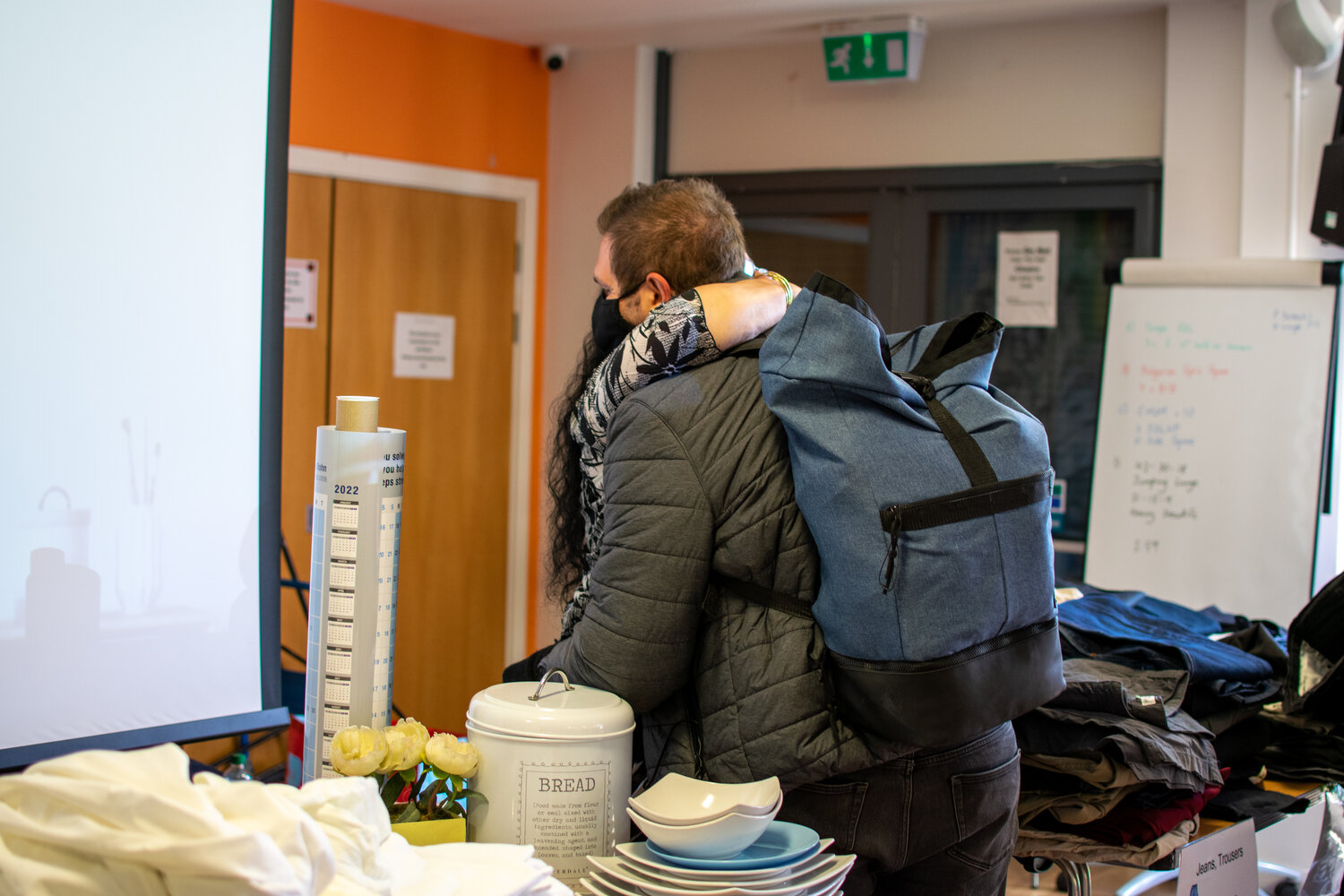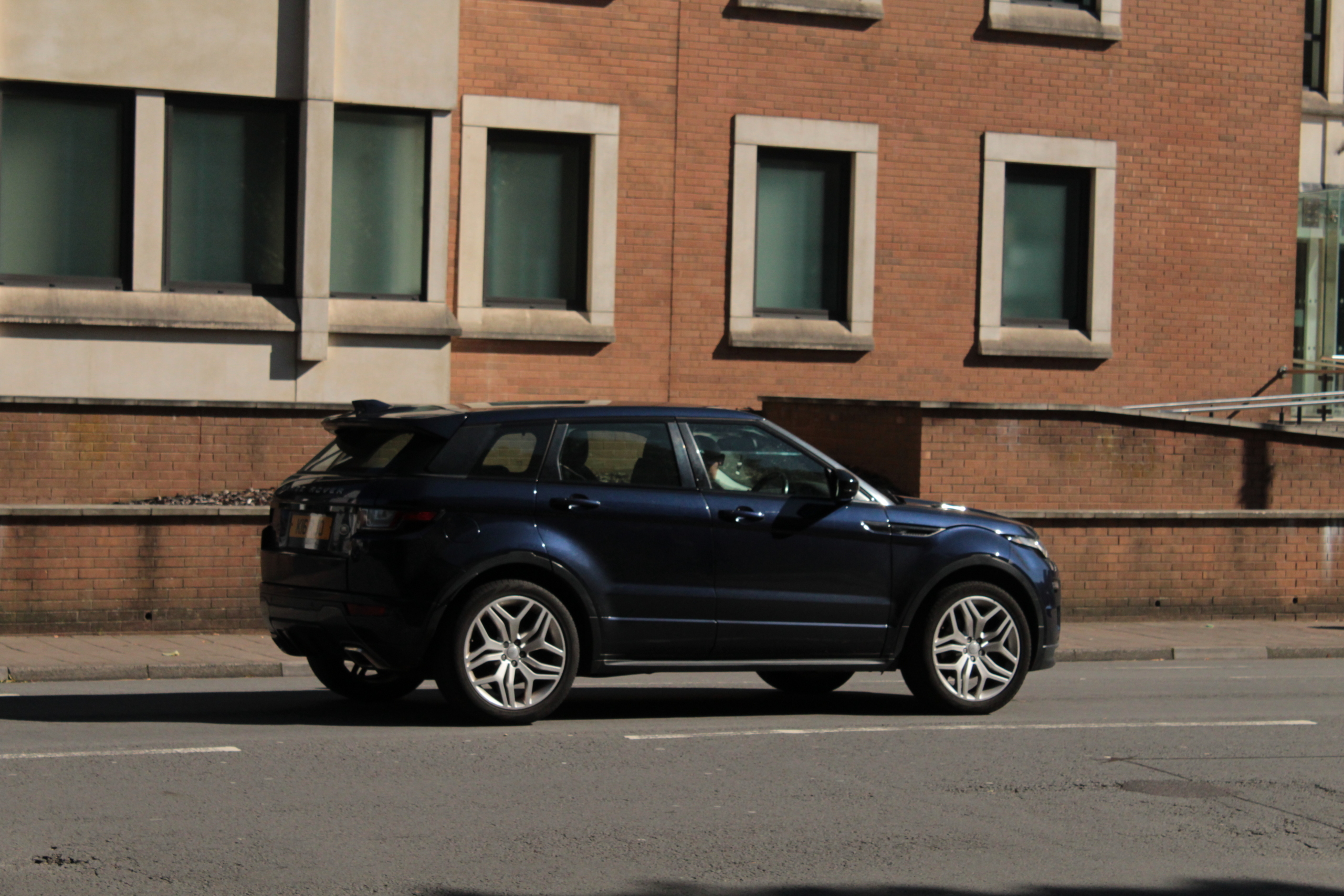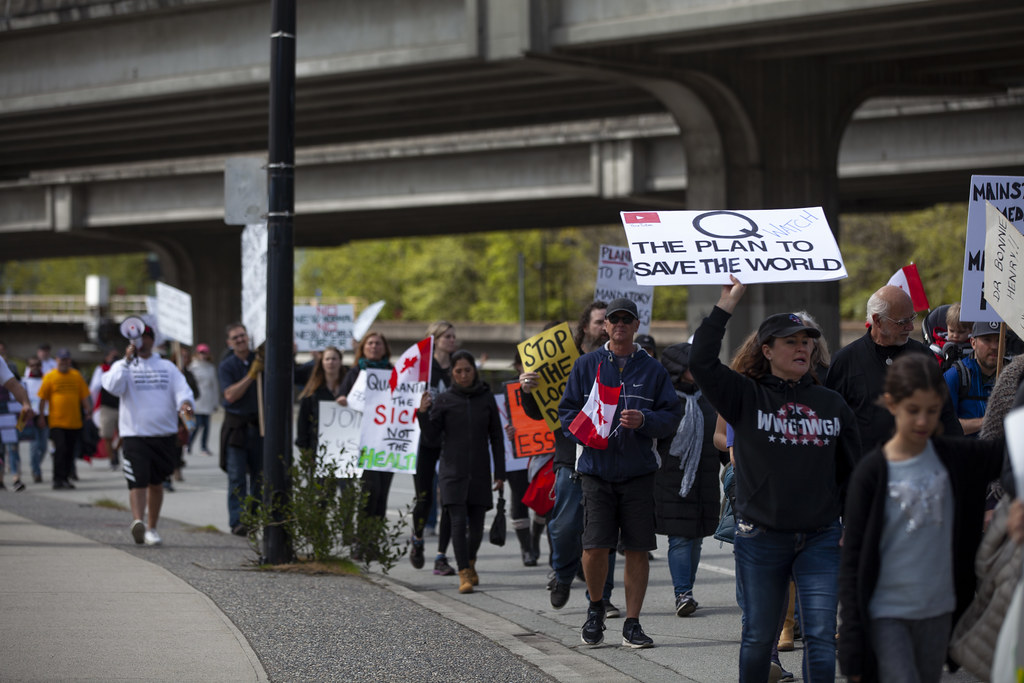
REUNITED AFTER PENALLY, ASYLUM SEEKERS BUILD SOLIDARITY AGAINST THE HOSTILE ENVIRONMENT
WHEN PENALLY ARMY BARRACKS WAS CLOSED, IT MARKED THE END OF A SHAMEFUL CHAPTER IN THE TREATMENT OF ASYLUM SEEKERS IN WALES. BUT SINCE LEAVING THE CAMP, MANY OF THE MEN HAVE FOUND THEMSELVES IN DESPERATE CIRCUMSTANCES, OFTEN LEFT WITH NOTHING AND UNABLE TO WORK. HARASSED & PERSECUTED BY THE BRITISH STATE, THEY ARE NOW WORKING WITH LOCAL ACTIVISTS TO HELP ALL ASYLUM SEEKERS, AND BRING PEOPLE TOGETHER AGAINST THE HOSTILE ENVIRONMENT. THEY TOLD RACHEL BARWELL THEIR STORIES OF WHY THEY FLED TO BRITAIN AND WHAT THEY FACED UPON ARRIVAL.
By Rachel Barwell at Butetown Community Centre, additional reporting by SC Cook. Images by Rachel Barwell
When the first group of asylum seekers arrived by coach in Penally last year, they quickly found out that their lives were not about to get any easier. The disused army barracks near Tenby, Pembrokeshire were cold and inhospitable, toilets were regularly blocked, residents treated as if they were prison inmates and served uncooked meat. But after being forced together in such circumstances, and fighting to free themselves from the camp, asylum seekers are now developing their own network of mutual aid and solidarity with the help of community activists.
The men, who formed their own union to end the use of Penally barracks as an accommodation site, are now working with supporters to organise donations of clothes and essential supplies to all asylum seekers. This includes those who have been left with nothing since the camp was closed on 21st March, after mounting pressure from those inside, ongoing legal action and a damming inspectorate report.
An asylum seeker’s union, Camp Residents Of Penally (C.R.O.P), was set up by a group of the men inside in October last year, to voice the demands of residents in the face of their appalling treatment and the squalid living conditions the UK Home Office had thrown them into.
But since leaving the camp, many have been left isolated from their friends and placed into accommodation that is dirty, and even unsafe. But the union has continued under a new name, Life Seekers Aid, and aims to provide support to former Penally residents and others in a similar situation.

On Sunday 11th April, in Butetown Community Centre, Hillary Brown – chair of the centre -put on an event with Life Seekers Aid, described as a ‘welcome day,’ to distribute ‘free clothes, shoes and toiletries’ for male asylum seekers. The event was a success, with around 136 people attending throughout the day, exceeding the expectations of the organisers
Ms Brown, a prominent civil rights lawyer, says she is now planning to host more events at the centre, with another on 23rd May aimed at women asylum seekers.
In the face of what she describes as the failure of Welsh Government and local authorities to help people desperately seeking refuge, who face persecution from the UK government’s hostile environment, Brown wants to bring asylum seekers together with people in the Butetown community.
Stepping into the hall, I was met with a room full of clothing and friendly faces. The space was encompassed with a sea of red shirts in an attempt in defining volunteers from asylum seekers who had come to collect essential supplies.
When they entered the hall, the men were immediately given bags which they could then use to circle the room and pick out four items from each category: Four t shirts, shorts, coats, shoes and so much more. They were then led through to a small canteen and given a plate of fresh, hot food and at departure, they were handed several bags of fruit and vegetables, canned food and toiletries.

Everything that filled the room had been donated by the local community and sorted through and organised by volunteers, many of whom had come from the Penally camp themselves.
But this wasn’t just about collecting clothes and supplies, it was also an opportunity for asylum seekers to see some friendly faces and sit down and eat together. Sat alongside them were people from the local community of Butetown, who heard asylum seekers’ stories.
As the day progressed, I spoke with some of the volunteers who gave me an insight into the horrors they had endured on their rigorous journeys to get to Wales.
Kinan’s story: After fleeing Syria, I was refused entry to a Turkish asylum seeker camp and humiliated by guards.
One of these was Kinan, the man who founded C.R.O.P, now Life Seekers Aid. He told me parts of his story. He had attempted to leave war-torn Syria for the hope of a better life. The first time Kinan left, he managed to escape to Turkey, but when he arrived at a local asylum seeker camp, he was refused entry because they said his need was not dire enough. He was belittled by the staff of the camp, who told him about Turkish soldiers fighting in Syria, and they said he should return and join in the fighting.

Desperate, Kinan tried to leave Syria eight more times before successfully finding refuge in Europe. It was upon his arrival in Britain that he spent time in both London and Bristol, before eventually being sent to Penally camp.
Kinan was among the first group of asylum seekers to set foot in Penally, but when he and others arrived, they realised that their lives weren’t about to get easier after reaching the British Isles.
The UK Government used the Covid-19 pandemic as an excuse not to give them the comfort and safety they so desperately deserved. They were met with inhospitable, cold dorms, uncooked food, blocked toilets, punitive security guards and what they described as prisoner-of-war style treatment.
It was through their experience of the misery of Penally camp that many of the asylum seekers banded together, creating C.R.O.P, which strengthened links with the local community to come together and fight for better conditions and ultimately for the closure of the camp. The group wrote to the firm who ran the camp, Clearsprings, making a series of demands, and held several protests in the nearby town of Tenby.
The union also allowed the residents to come together and concentrate on something positive, using what little resources they had to help other asylum seekers. Many of the stories I heard were unforgiving tales of treacherous journeys through many countries of which they had been forced to flee.
The men told me of wars and poverty in the Middle East, while others spoke of the issues in Central America, with gang violence and drug cartels.

Eduardo’s story: I was told, “Okay, say your last words, we’re going to kill you.”
One of the volunteers, Eduardo, had travelled from El Salvador in Central America. 27 years old, he told me about his home country, reminiscing of the times he spent travelling through its beautiful land filled with cities, beaches, mountains and volcanoes.
A country made up of only 6.4million people, where coffee grows in its richest form and sugar canes scatter the fields.
But it is also one of the most dangerous places on earth to live. Eduardo told me about his family. His father is a pastor and his mother works to help the poorest communities in the country.
He spoke about the drug cartels and gangs who have immense power in the country, explaining how they often target younger people in an attempt to grow their organisations. Remembering the beginning of his story that forced him to leave, he described how one day after church, still in the early evening, he had decided to go for a walk.
Eduardo explains what happened next: “I saw a group of people and they were drinking, they started yelling at me “What are you doing here?” because they are really territorial people, so if you come to them without any reason, they will kill you…one of [them] approached me, and he started to ask me for money, and I give him my wallet, my purse, my cell phone, everything that I have.”
But one of the men also recognised Eduardo. “He said, ‘He’s the son of the pastor,’ and I denied it,” Eduardo explains. But it was no good, they knew who his father was and decided his life could demand a higher ransom. After a pleading with them to let him go, he was knocked unconscious by the gang.
“When I woke up, I was in a place where I don’t know, it was in the countryside,” Eduardo recalls.
“Then I realised I was tied up, my feet as well, so I start to pray. When they noticed that I was coming around, they started to ask me for the password to my cell phone to call my father and my friends to ask for money”.
Eduardo becomes upset as he tells me what happened next: “The only thing you want to do is to protect your parents. So, I did it [the code] wrong many times so I knew the phone would become blocked, and in that moment, they start to hit me. ‘Why did you do that?’ and I said, ‘I don’t remember my password.’ They replied, ‘that’s not possible’ and so they start to hit me again and then I fell on the floor, and they started to kick me, I asked them to stop but then I lost consciousness again when I realised I was bleeding.”
He was locked in a dark room and told by one of his attackers that he had made the worst decision of his life. The most aggressive of the men told him they were about to kill him. “And it was something like a movie,” he says, “because they said “Okay, say your last words, we’re going to kill you.”
They took him out of the house, untied his hands and put him on his knees with a gun to his head.
“I start to pray. It was the last thing that I was supposed to do,” he recalls. “I was just waiting for the shot but at that moment when I was praying, there were guys, on the other side of the house and I realised they were shooting, but they were not shooting at me, they were shooting at somebody else. The three guys that were with me, at that moment, they run to the other side of the house and they leave me alone. And I was like “What is happening? I’m alone” and when I realised they were shooting someone else, I start to run, and I escape.”
His captors had been momentarily distracted by a rival gang, giving Eduardo a split moment to get away. They quickly realised, however, and he ran for his life, hiding at night by a roadside whilst he could hear the gang members search for him. Eventually, when he was confident they had gone, he ran to safety.
It was after this terrifying ordeal that Eduardo was forced to leave his home country of El Salvador. He had a target on his head and he had to escape.
He spent two years in Italy, where he faced high levels of racism and discrimination. He travelled back to El Salvador, but it was quickly apparent that despite his wishes, he couldn’t stay.
In 2020 he finally managed to arrive safely in Britain. Upon arrival, however, he was suspected of being a criminal, put into a holding cell and questioned rigorously. Eventually, the authorities told him they had made a mistake and he was later sent to Penally. Like other asylum seekers, what greeted Eduardo there was an open air prison and squalor.

The British state’s racist attitude to asylum seekers underpins the filthy living conditions they are expected to live in.
Home Secretary Priti Patel has defended the use of barracks, and even blamed those inside for ‘mingling’ and breaking rules when it emerged that 178 asylum seekers in the Napier Barracks had become infected with Covid-19.
In March, Patel announced a further clampdown on people seeking asylum, and said that those who arrived in Britain via a non-approved route were “not seeking refuge from persecution” but were “choosing the UK” as a “preferred destination.”
Under the new rules she has brought in, those who arrive in this way will be permanently subject to deportation.
But the situation for asylum seekers and refugees is already dire. Those who are registered in the system are forced to survive on just £35 a week, constantly being harassed by the state and moved from place to place with no answers.
They are not allowed to work and accessing education can be difficult. The situation makes it incredibly hard for asylum seekers to keep in contact with each other, let alone organise.
In Butetown Community Centre, many are happy to see each other again and take comfort from a sense of unity and solidarity. One man, who wished to remain anonymous, explained how since arriving in the UK, he has been moved to more than 4 places of residence and currently resides in a hotel, like so many others.
Every time he moves, connections are made but then suddenly, they get cut again.
For now at least, these men have taken matters into their own hands, and through Lifeseekers Aid and with the support of the community, are defying the British state



1 Comment
Comments are closed.